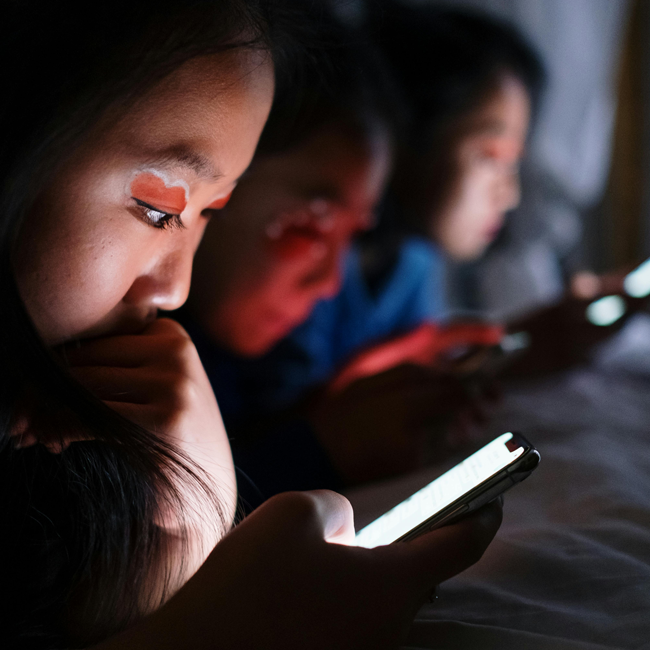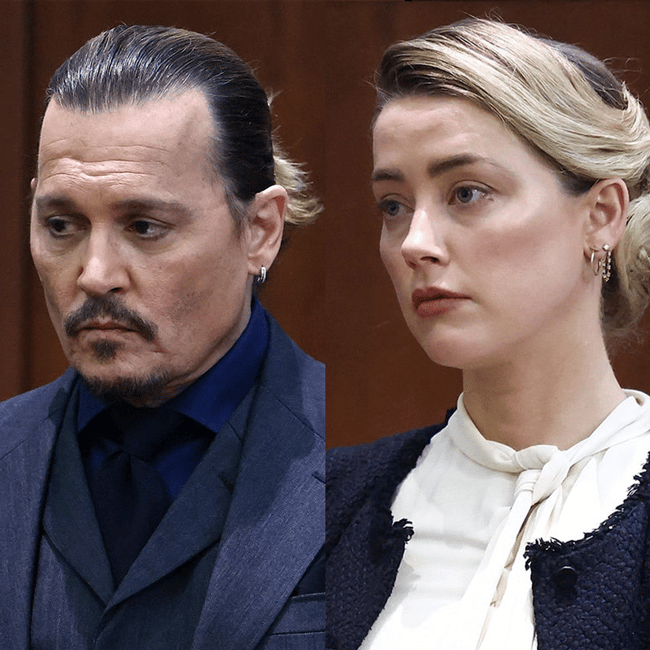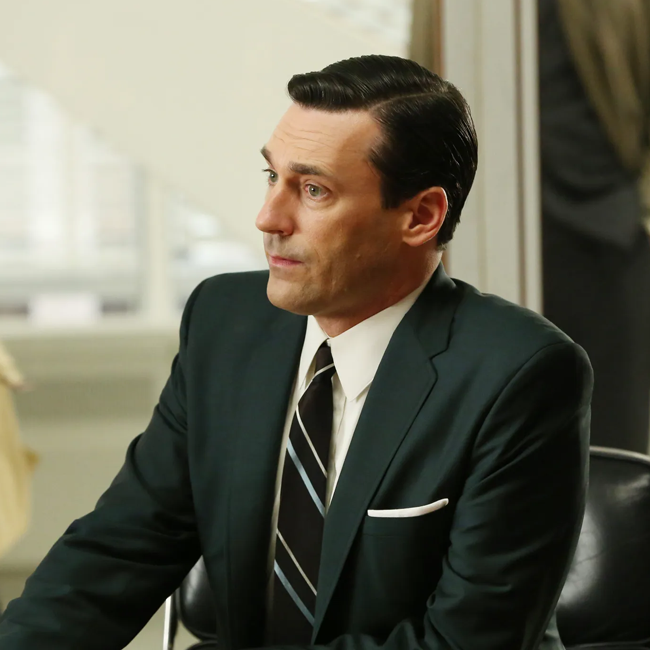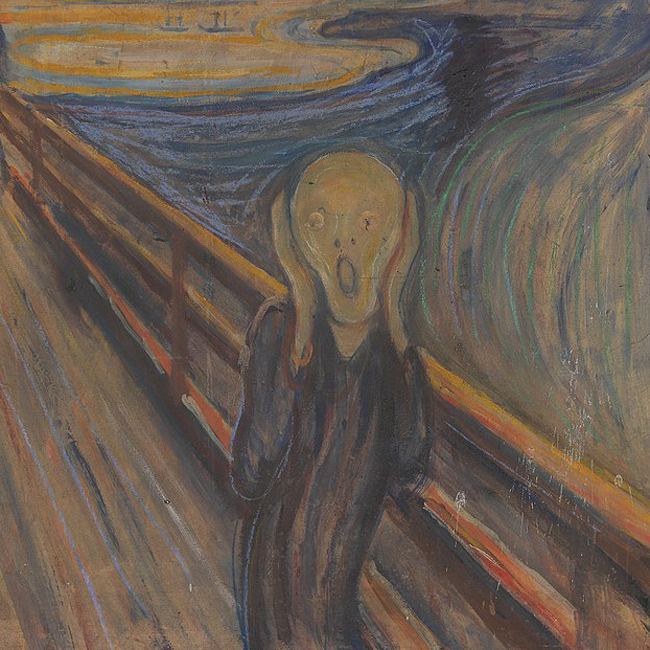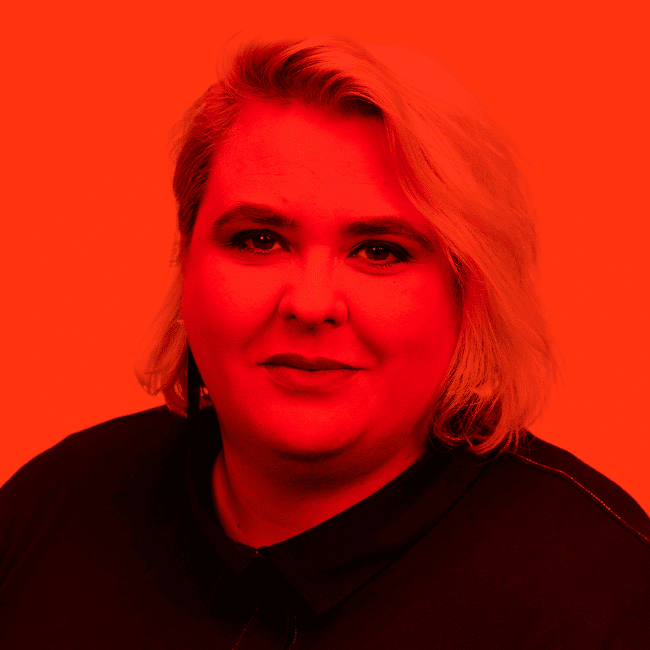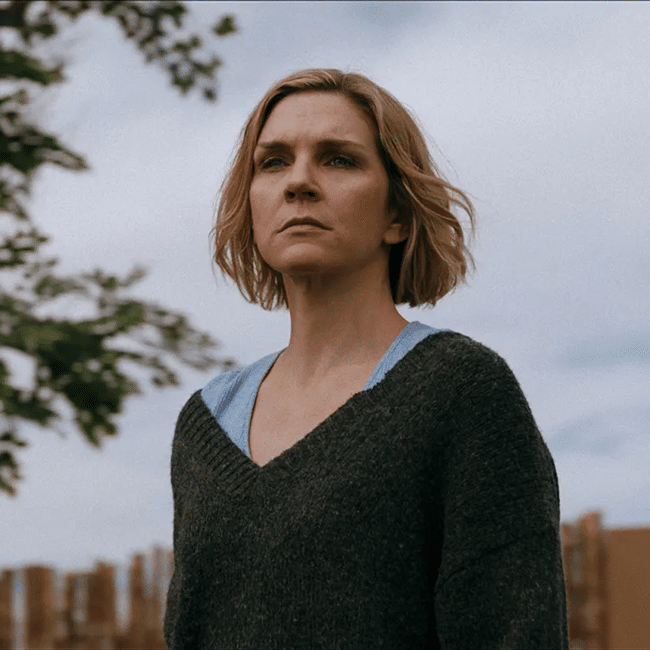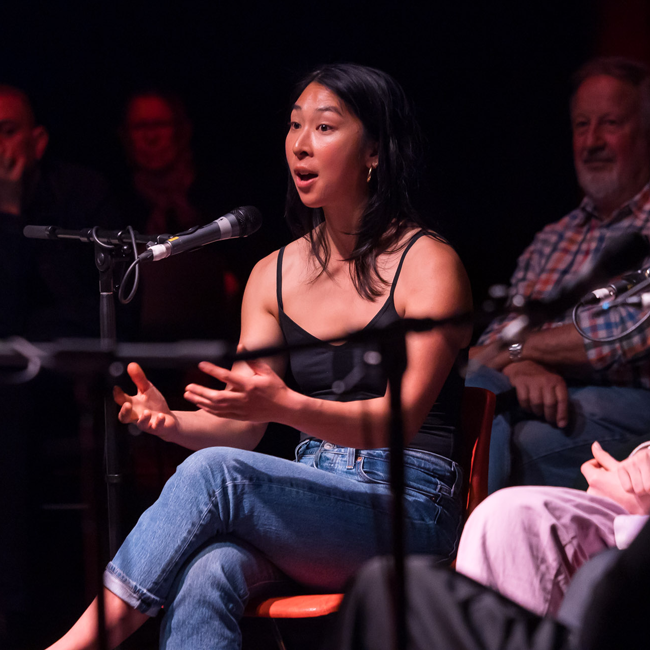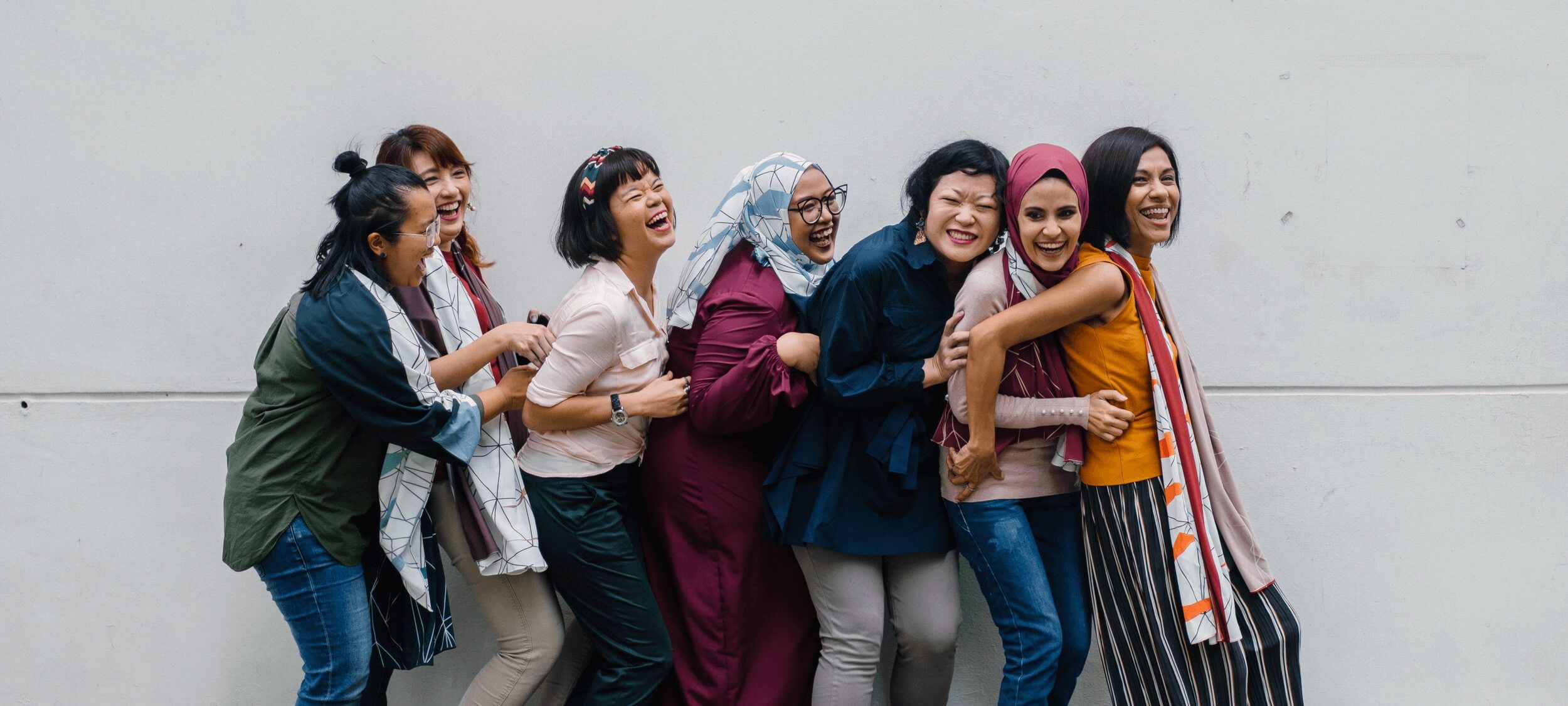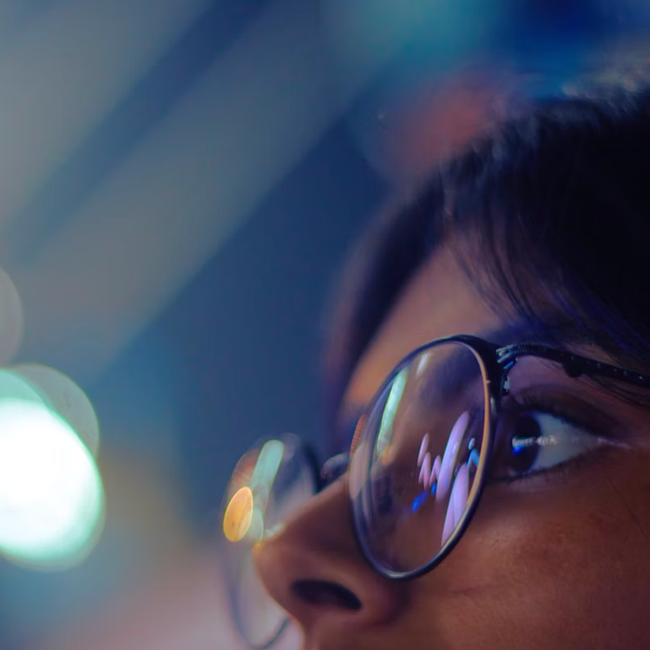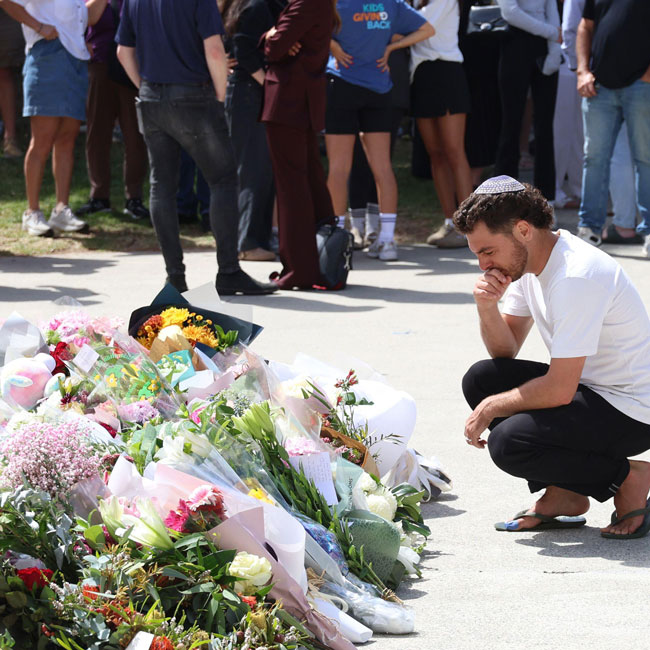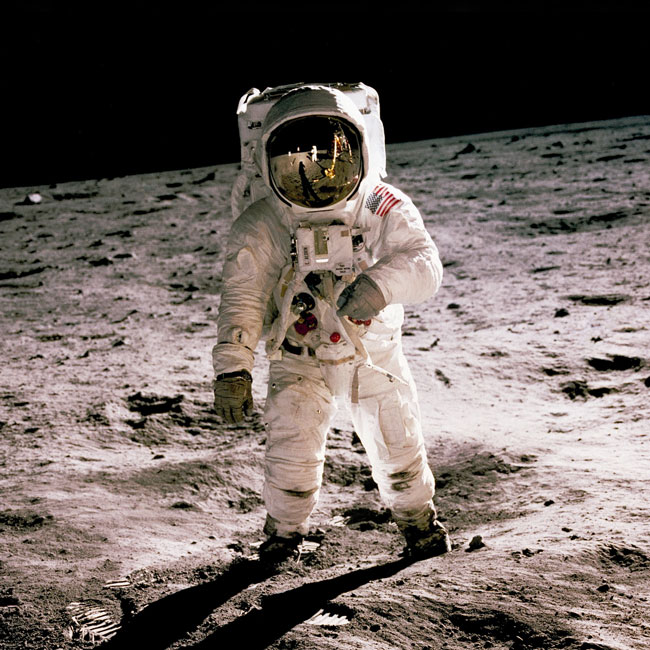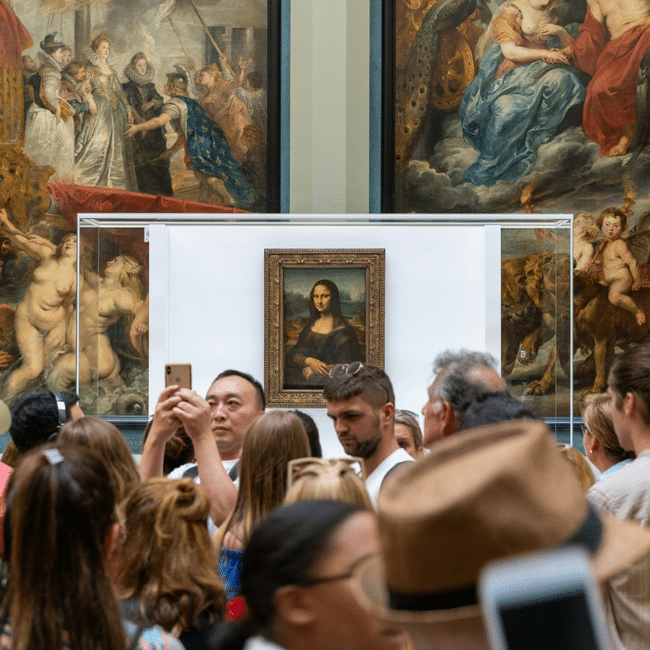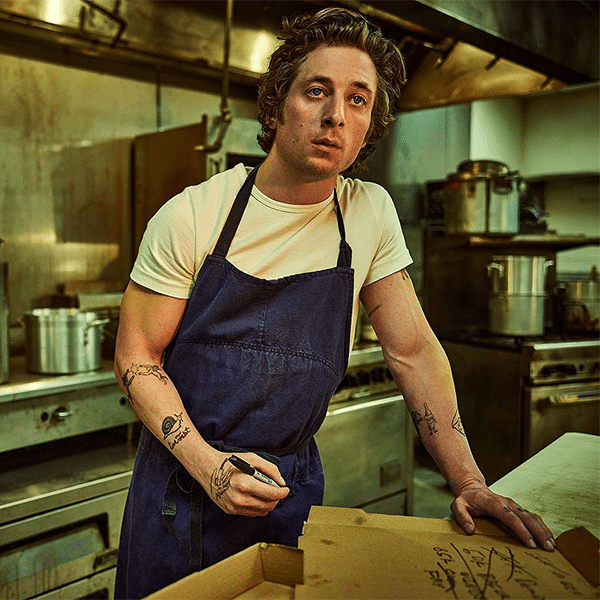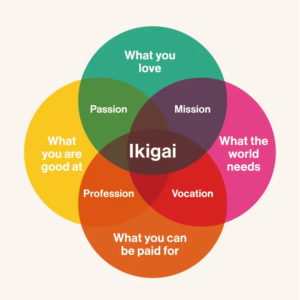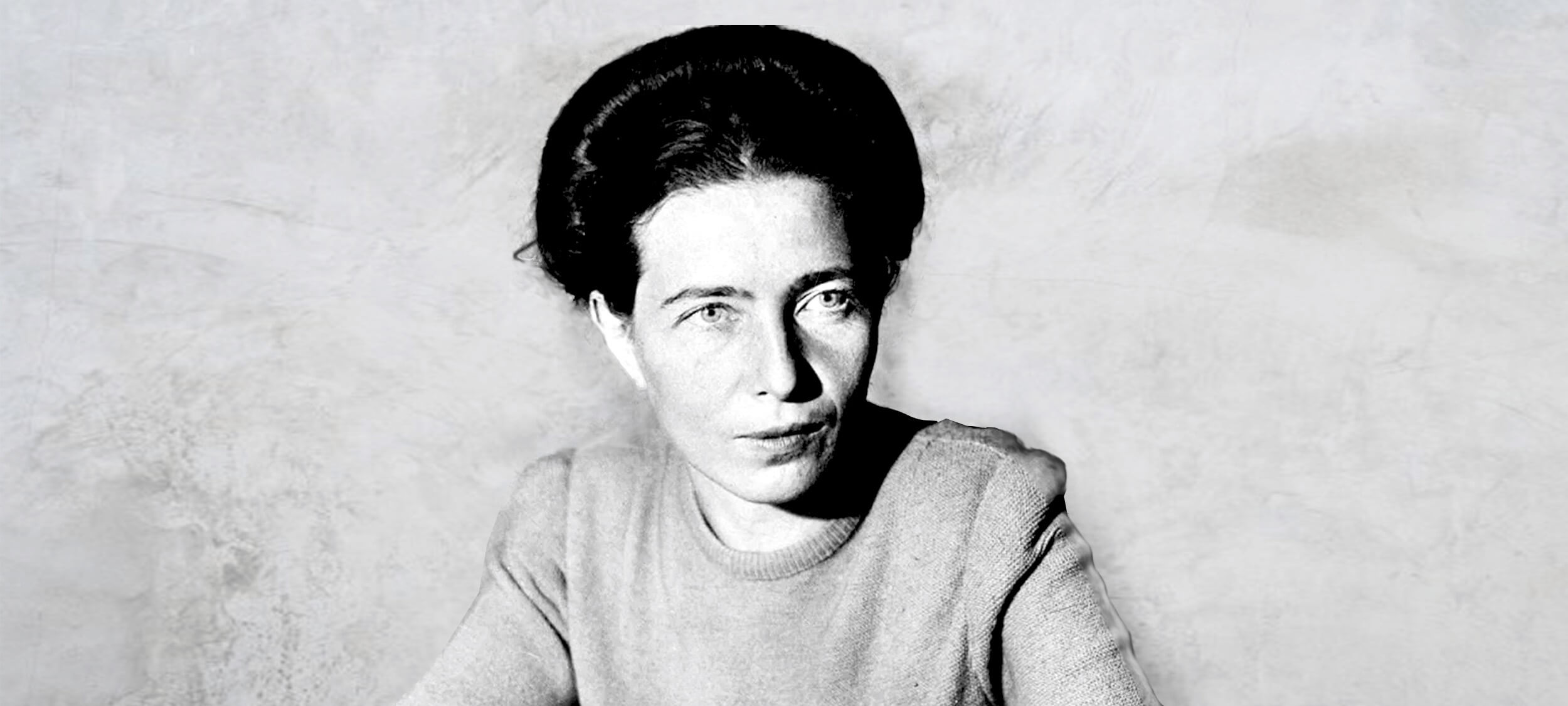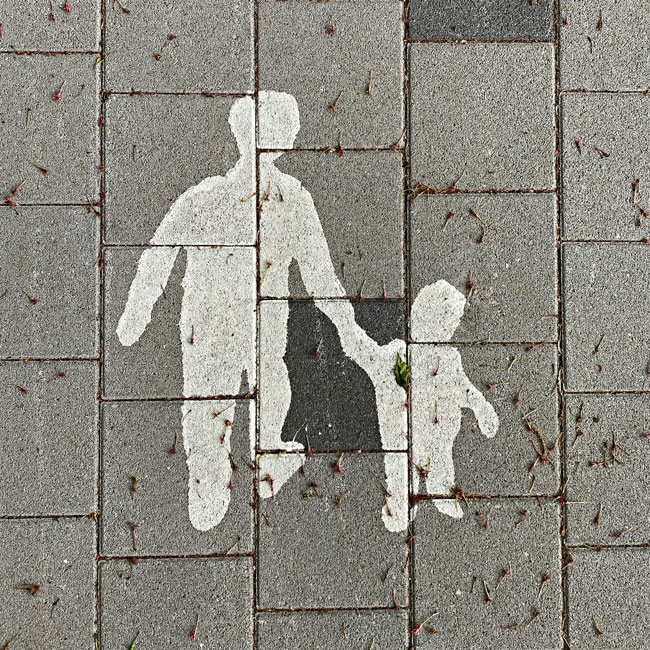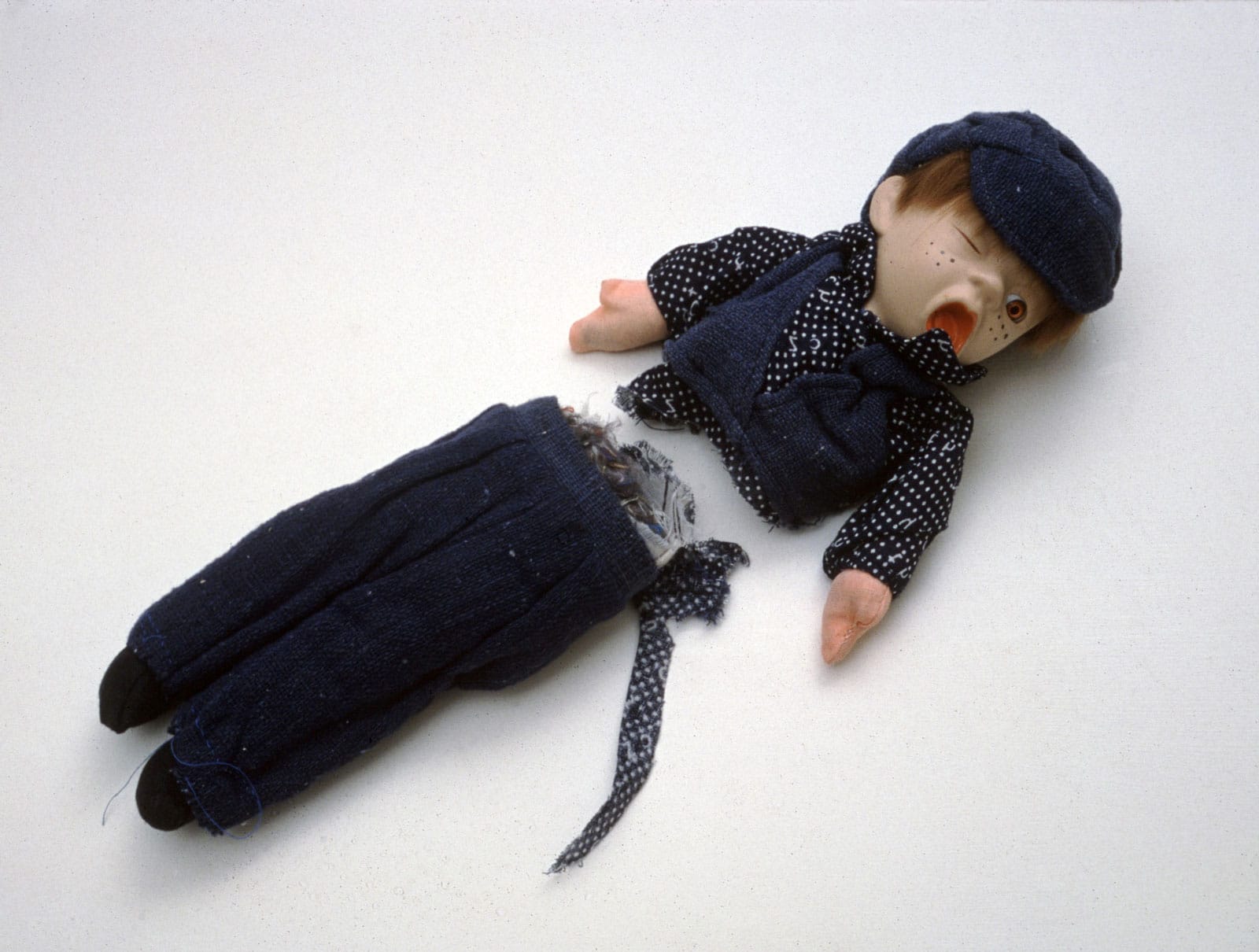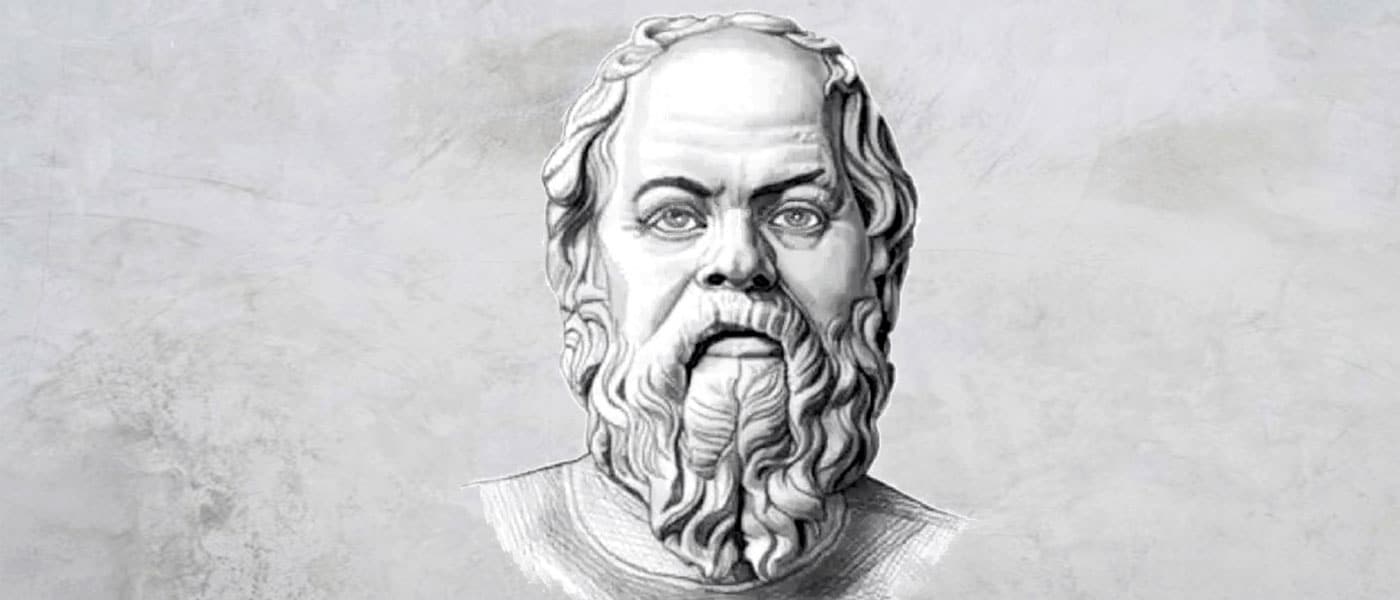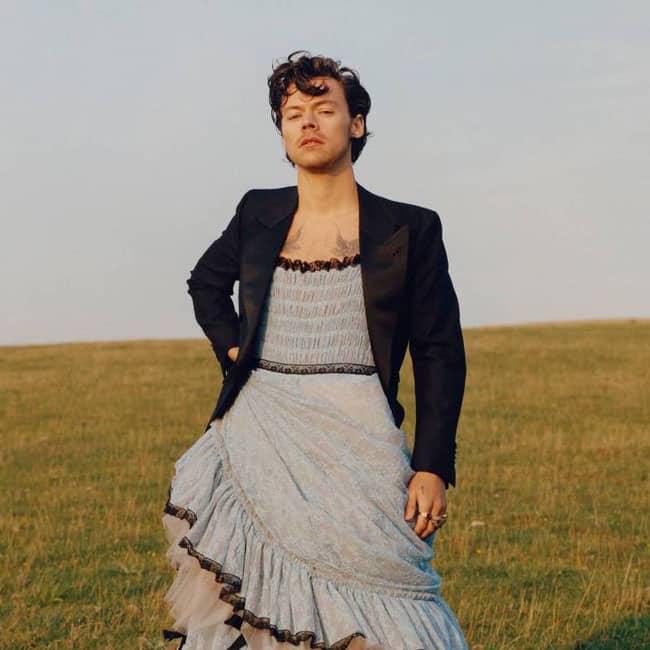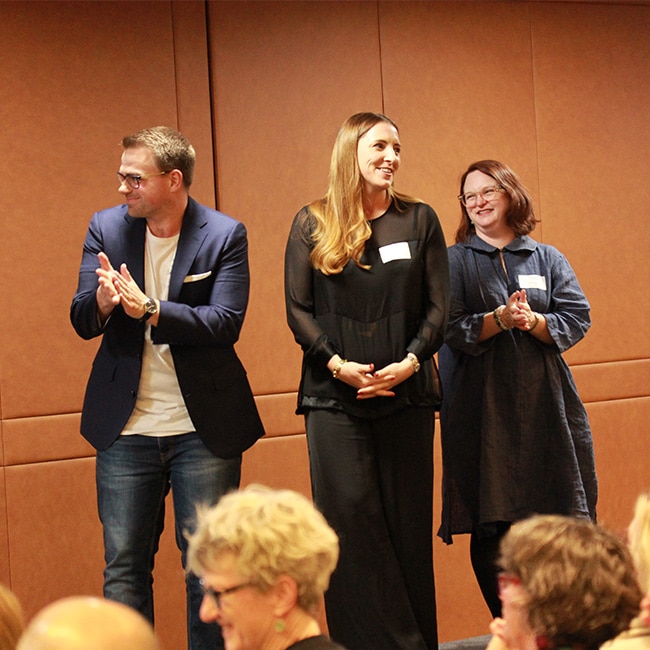That’s not me: How deepfakes threaten our autonomy
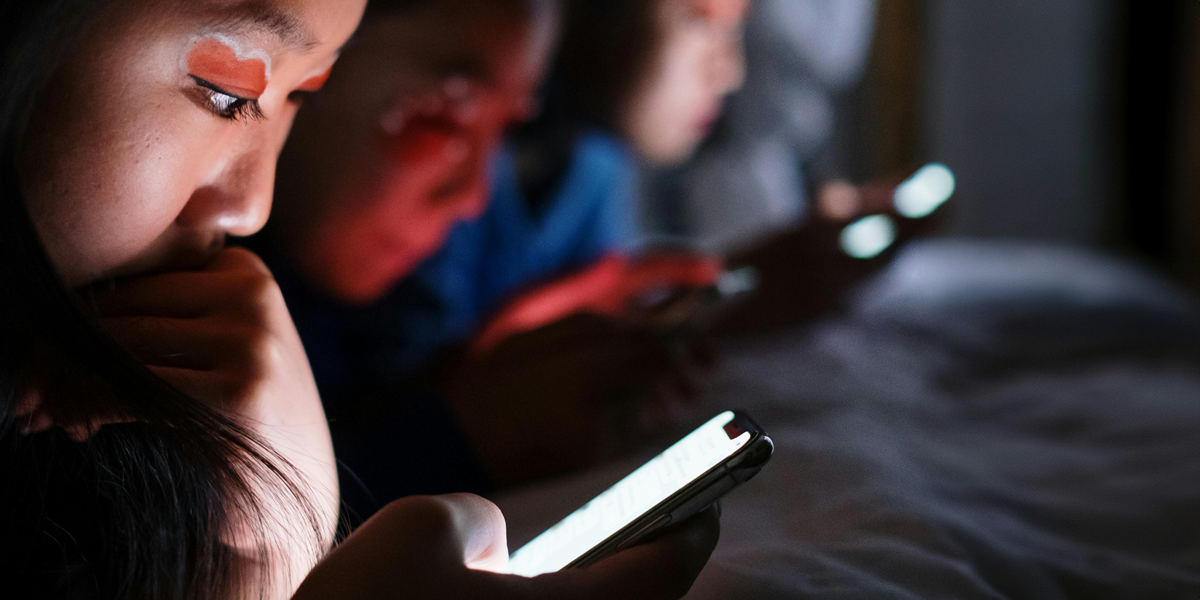
That’s not me: How deepfakes threaten our autonomy
Opinion + AnalysisScience + TechnologySociety + Culture
BY Daniel Finlay 19 AUG 2025
In early 2025, 60 female students from a Melbourne high school had fake, sexually explicit images of themselves shared around their school and community.
Less than a year prior, a teenage boy from another Melbourne high school created and spread fake nude photos of 50 female students and was let off with only a warning.
These fake photos are also known as deepfakes, a type of AI-augmented photo, video or audio that fabricates someone’s image. The harmful uses of this kind of technology are countless as the technology becomes more accessible and more convincing: porn without consent, financial loss through identity fraud, the harm to a political campaign or even democracy through political manipulation.
While these are significant harms, they also already exist without the aid of deepfakes. Deepfakes add something specific to the mix, something that isn’t necessarily being accounted for both in the reaction to and prevention of harm. This technology threatens our sense of autonomy and identity on a scale that’s difficult to match.
An existential threat
Autonomy is our ability to think and act authentically and in our best interests. Imagine a girl growing up with friends and family. As she gets older, she starts to wonder if she’s attracted to women as well as men, but she’s grown up in a very conservative family and around generally conservative people who aren’t approving of same-sex relations. The opinions of her family and friends have always surrounded her, so she’s developed conflicting beliefs and feelings, and her social environment is one where it’s difficult to find anyone to talk to about that conflict.
Many would say that in this situation, the girl’s autonomy is severely diminished because of her upbringing and social environment. She may have the freedom of choice, but her psychology has been shaped by so many external forces that it’s difficult to say she has a comprehensive ability to self-govern in a way that looks after her self-interests.
Deepfakes have the capacity to threaten our autonomy in a more direct way. They can discredit our own perceptions and experiences, making us question our memory and reality. If you’re confronted with a very convincing video of yourself doing something, it can be pretty hard to convince people it never happened – videos are often seen as undeniable evidence. And more frighteningly, it might be hard to convince yourself; maybe you just forgot…
Deepfakes make us fear losing control of who we are, how we’re perceived, what we’re understood to have said, done or felt.
Like a dog seeing itself in the mirror, we are not psychologically equipped to deal with them.
This is especially true when the deepfakes are pornographic, as is the case for the vast majority of deepfakes posted to the internet. Victims of these types of deepfakes are almost exclusively women and many have commented on the depth of the wrongness that’s felt when they’re confronted with these scenes:
“You feel so violated…I was sexually assaulted as a child, and it was the same feeling. Like, where you feel guilty, you feel dirty, you feel like, ‘what just happened?’ And it’s bizarre that it makes that resurface. I genuinely didn’t realise it would.”
Think of the way it feels to be misunderstood, to have your words or actions be completely misinterpreted, maybe having the exact opposite effect you intended. Now multiply that feeling by the possibility that the words and actions were never even your own, and yet are being comprehended as yours by everyone else. That is the helplessness that comes with losing our autonomy.
The courage to change the narrative
Legislation is often seen as the goal for major social issues, a goal that some relationships and sex education experts see as a major problem. The government is a slow beast. It was only in 2024 that the first ban on non-consensual visual deepfakes was enacted, and only in 2025 that this ban was extended to the creation, sharing or threatening of any sexually explicit deepfake material.
Advocates like Grace Tame have argued that outlawing the sharing of deepfake pornography isn’t enough: we need to outlaw the tools that create it. But these legal battles are complicated and slow. We need parallel education-focused campaigns to support the legal components.
One of the major underlying problems is a lack of respectful relationships and consent education. Almost 1 in 10 young people don’t think that deepfakes are harmful because they aren’t real and don’t cause physical harm. Perspective-taking skills are sorely needed. The ability to empathise, to fully put yourself in someone else’s shoes and make decisions based on respect for someone’s autonomy is the only thing that can stamp out the prevalence of disrespect and abuse.
On an individual level, making a change means speaking with our friends and family, people we trust or who trust us, about the negative effects of this technology to prevent misuse. That doesn’t mean a lecture, it means being genuinely curious about how the people you know use AI. And it means talking about why things are wrong.
We desperately need a culture, education and community change that puts empathy first. We need a social order that doesn’t just encourage but demands perspective taking, to undergird the slow reform of law. It can’t just be left to advocates to fight against the tide of unregulated technological abuse – we should all find the moral courage to play our role in shifting the dial.

BY Daniel Finlay
Daniel is a philosopher, writer and editor. He works at The Ethics Centre as Youth Engagement Coordinator, supporting and developing the futures of young Australians through exposure to ethics.
Ethics in your inbox.
Get the latest inspiration, intelligence, events & more.
By signing up you agree to our privacy policy
You might be interested in…
Opinion + Analysis
Business + Leadership, Relationships, Society + Culture
Renewing the culture of cricket
Opinion + Analysis
Science + Technology
On plagiarism, fairness and AI
Opinion + Analysis
Politics + Human Rights, Relationships, Society + Culture
You won’t be able to tell whether Depp or Heard are lying by watching their faces
Opinion + Analysis
Relationships, Society + Culture
Joker broke the key rule of comic book movies: it made the audience think
The ethical honey trap of nostalgia

Marvel’s in trouble. The once box office-dominating brand has hit every branch on the way down as of late, from cancelled shows to thinning audiences. So, consider it a sign of the times that the folks behind the behemoth have attempted to enliven their cinematic futures not by looking forward, but instead casting their gaze way back.
The Fantastic Four, the third attempt to make the family of superheroes work on the big screen, jettisons the usual digital sheen of superhero properties in favour of old-fashioned nostalgia. Set in an alternate, 1950s-style world, the film’s visual style and production values have been heralded as a bold break from the norm – which is funny, given how deliberately re–trotted they are.
Not only has ‘50s fantasy been done before in, y’know, the ‘50s, but we’ve already had multiple recycles of that trend, from the glossy world of Mad Men to the screwball textures of films like Down With Love. Marvel’s “new” style is not just a throwback. It’s a throwback of a throwback.
The antidote to irony
The film’s not alone in that open nostalgia, either. James Gunn’s Superman reboot attempts to make the gung-ho, gee-wizz character work by similarly leaning into an old-school fantasy, where journalism is heralded as truth-telling, and unabashed optimism is the name of the day. Then there’s Lena Dunham’s new rom-com series Too Much, which offsets its decidedly modern story with near constant references to Jane Austen-inflected romance, openly lusting after a bygone world where manners ruled the day, and sincerity was the default response.

This sudden rush of nostalgia can be read, above everything else, as a society trying to shake itself free of cynicism and layers of irony. The 90s saw post-modern go mainstream, with every cinematic hero affecting a wise-cracking, subversive mode, and over the decade and a bit after, that irony only got more layered. Eventually, you end up with someone like Deadpool, who can’t take a breath without acknowledging that he’s a character in a movie.
It was the writer David Foster Wallace who saw where this was all going to take us, writing over 20 years ago that “irony and ridicule are entertaining and effective, and that, at the same time, they are agents of a great despair and stasis in US”. Irony reduces and destroys, and is inherently oppositional in nature – not just aesthetically, but ethically, leaving us paralysed by our own smartness and subversion, without any energy left over to actually do anything.
And our need to do something is only greater than ever – as the world gets darker and more dangerous, it makes sense that we would turn back to the forward thinking and action of the ‘50s. The Fantastic Four and Superman come from a time where heroes actually believed that the world was a good place, and fought to make it even better. Being nostalgic for them means being nostalgic for proactive ethical agents, who, rather than spending their time brooding and moaning, fought for something. In short, it means being nostalgic for hope.
Nostalgia’s trap
But if we seek to distance ourselves from the dangerous trap of irony, then we should be careful to not run too open-armed into nostalgia. Nostalgia, after all, is its own kind of trap. Rather than making something genuinely new – something that responds to the world as it actually is – nostalgia is inherently regressive.
Philosopher Mark Fisher wrote about exactly this, seeing nostalgia as part of the “slow cancellation of the future”; the eradication of possibility and free-thinking. No wonder that conservatives the world over, Donald Trump chief among them, have aggressively nostalgic worldviews: nostalgia, when used improperly, can be a form of ethical despair and stasis too.
The nostalgia trap is laid bare in another film released this year – Danny Boyle’s 28 Years Later. In the film, an isolated community trying to get by in a post-apocalyptic world, find their strength in visions of nostalgic Britain. In one montage, early in the film, two of our heroes making their way across a dangerous landscape are intercut with images of British soldiers at Agincourt, all scored to a Rudyard Kipling poem – Kipling being that hero of early British imperialism. The heroes in Boyle’s film try to survive and draw their strength from remembering how things used to be. And in turn, they end up trapped, locked into regressive and cruel worldviews that damage them.
That thesis is made shockingly clear in the last five minutes of the film, where the young hero (spoiler alert), finds himself saved by a roaming gang all made up of thugs dressed like disgraced pedophile Jimmy Savile. The young hero accepts them, open-armed. The kind of nostalgia that he has been raised on has no room for nuance. It’s essentially flattening, making a sort of caricature of England’s past.
In this way, Boyle criticises the nullifying effects of nostalgia: it casts the entire past as something to return to, without remembering its horrors and its shortcomings. If all we ever want to be is what we once were, then we will never truly change.
Nostalgia might be useful to energise us, but only if it’s used selectively and critically – if we aim to be better than what we once were, not merely the same.
As with so many things, we find our way forward through the mid-ground. Not just recreating the 50s, but taking what we want from it – the hope, the energy, the sense of optimism – and jettisoning what we don’t. The way to avoid the cancellation of the future, after all, is by believing that the future exists – that there’s still room, even now, to use the past to create something that has never occurred before.

BY Joseph Earp
Joseph Earp is a poet, journalist and philosophy student. He is currently undertaking his PhD at the University of Sydney, studying the work of David Hume.
Ethics in your inbox.
Get the latest inspiration, intelligence, events & more.
By signing up you agree to our privacy policy
You might be interested in…
Opinion + Analysis
Society + Culture
What are we afraid of? Horror movies and our collective fears
Opinion + Analysis
Politics + Human Rights, Relationships, Society + Culture
Of what does the machine dream? The Wire and collectivism
Opinion + Analysis
Society + Culture, Business + Leadership
How to tackle the ethical crisis in the arts
Opinion + Analysis
Business + Leadership, Politics + Human Rights, Society + Culture
Drawing a line on corruption: Operation eclipse submission
Four causes of ethical failure, and how to correct them

Four causes of ethical failure, and how to correct them
Opinion + AnalysisBusiness + LeadershipSociety + Culture
BY Tim Dean 30 JUL 2025
Sometimes good people do bad things. It’s important to understand why so we can respond ethically.
The news is filled with stories of everyday people doing bad things. A small business owner might underpay workers, a senior manager in a corporation could be cutting corners to improve profit margins, or a protester damages a precious artwork to promote their cause.
It’s natural to feel outrage when we hear about incidents like this. We might condemn the perpetrator and want to see them punished. But not every wrongdoer is a moustache twirling villain. Often, they’re otherwise good people who are perfectly ethical in other aspects of their lives. This makes their bad behaviour especially puzzling.
If we don’t understand what motivates their behaviour, then we risk responding in a way that won’t fix the problem, or might even make things worse. Here are four different reasons why good people do bad things and some ways to prevent or correct them.
1. Weakness of will
Temptation is everywhere. Sometimes we know something is wrong, but we are tempted to do it anyway because we know doing so will benefit us. The small business owner might be tempted to increase their profits by paying their staff below minimum wage. Or your neighbour could be tempted to poison a beautiful old tree that is protected by council because it’s blocking their view.
When we’re faced with temptation, and if we think we can get away with it, it takes willpower to stop us from doing the wrong thing. Yet, all too often, willpower is insufficient to stop us. This weakness of will, called “akrasia” by Aristotle, is one of the main causes of unethical behaviour.
There are two dimensions to weakness of will: the first is desire, which sits in tension with willpower. As such, one way to prevent weakness of will is to cultivate the virtue of self-control. However, it may not be prudent to rely on self-control entirely, given that it’s an all-too finite resource for many of us.
So, the other approach is to reduce temptation. That could mean removing the source of the temptation from our presence, like hiding the chocolate cookies in the cupboard rather than leaving them out on the kitchen table. It can also mean increasing accountability, such as through transparency and oversight. We’re less likely to be tempted to do something wrong if we feel we’re unlikely to get away with it.
2. Moral blindness
All too often, people simply don’t see that what they’re doing is wrong. Like the banker who is so focused on earning a commission that they turn a blind eye to money laundering. Or the manager who doesn’t realise that they keep unfairly promoting staff who have a similar ethnicity to them.
This is moral blindness. Sometimes it might be excusable, like if they had no way of knowing that they were causing harm. But, ignorance is not always an excuse. We must all be mindful of how our actions affect others, and we can’t avoid responsibility if we could have reasonably anticipated that our actions were unethical.
There’s also the problem of wilful obliviousness, which is where we avoid thinking too hard about what we’re doing because, deep down, we know it could be wrong. It’s like refusing to watch an exposé on animal abuse in farms because we don’t want to stop eating meat.
This is also a common phenomenon in workplaces, where workers can become distracted by chasing KPIs or boosting profits, and ethical concerns fall into the background. The Banking Royal Commission found many instances of wrongdoing because many financial institutions had a culture that rewarded sales over all else.
This is the danger of unthinking custom and practice. When people operate in a culture that is highly conformist, with incentives that reward unethical behaviour, they are less likely to reflect on or question whether what they’re doing is ethical.
One way to combat moral blindness is to create a culture of curiosity, where everyone is encouraged to reflect on and openly question their practices as well as the decisions of leadership. Another preventative is for organisations to be mindful of the goals they set and ensure they are not creating incentives to act unethically.
3. External constraint
Sometimes our hands are tied, and we’re forced to do something we know is wrong. In some cases, there might be nothing we can do to avoid the bad outcome, like a police officer who is forced to shoot someone who is threatening other people’s lives. In other cases, it’s because we’re faced with a moral dilemma, like choosing between keeping a promise to a friend or breaking that promise so they can get the help they need.
External constraints can lead to dirty hands, where someone is forced to do something bad to prevent something even worse from happening. In extreme cases, it can also lead to moral injury, which can cause them to lose faith in their own moral core and become detached or despondent.
An obvious way to prevent external constraints from leading to unethical behaviour is to remove the constraints themselves. That could involve anticipating problematic situations before they occur or making sure that people always have options to do the right thing. However, that’s not always possible. If so, then we should recognise that sometimes people do bad things because they had no other choice, which might result in us being more lenient when it comes to punishing them or correcting the behaviour.
Another way to deal with the problem of external constraints is to cultivate moral courage and moral imagination. Bolstering moral courage makes it easier for people to do the right thing, even when they know doing so might come at a cost. Moral imagination, on the other hand, helps people to expand their possible range of actions, and the chance they might find a way to get around the constraints.
4. Ethical disagreement
When an activist throws paint at a beloved artwork to protest the impact of fossil fuels on climate change, or your local childcare centre refuses to accept children who have not been vaccinated, you might think they’re doing something wrong, even though they are doing what aligns with their deepest moral principles.
We live in a highly diverse world, with countless different moral perspectives and multiple ethical frameworks to guide our behaviour. Until such time that humanity can come together and agree on a common set of values and principles to direct everyone’s behaviour, then ethical disagreement will persist.
One of the compromises we make to live in a liberal society is that we will tolerate some behaviour we believe is unethical, as long as others tolerate our behaviour that they consider to be unethical. Of course, there are limits to tolerance, but it means there will inevitably be cases where two different moral perspectives will clash. The danger is that it’s very easy to judge someone as being a bad person when they are actually acting out of an ethical motive.
This is not to say we can’t criticise them for doing it. Instead, the existence of ethical disagreement highlights the need to create spaces for people to engage with diversity in a safe and constructive way, and to know when we should tolerate or oppose someone else’s actions. If we’re able to recognise that someone is acting out of principle rather than malice, we might engage with them differently compared to going straight to condemnation or punishment.

BY Tim Dean
Dr Tim Dean is a public philosopher, speaker and writer. He is Philosopher in Residence and Manos Chair in Ethics at The Ethics Centre.
Ethics in your inbox.
Get the latest inspiration, intelligence, events & more.
By signing up you agree to our privacy policy
You might be interested in…
Opinion + Analysis
Politics + Human Rights, Relationships, Society + Culture
Punching up: Who does it serve?
Opinion + Analysis
Society + Culture
The ethics of pets: Ownership, abolitionism and the free-roaming model
Opinion + Analysis
Society + Culture
Read before you think: 10 dangerous books for FODI22
Opinion + Analysis
Business + Leadership
Ethics of making money from JobKeeper
Who’s afraid of the Big Bad Wolf? The story of moral panic and how it spreads
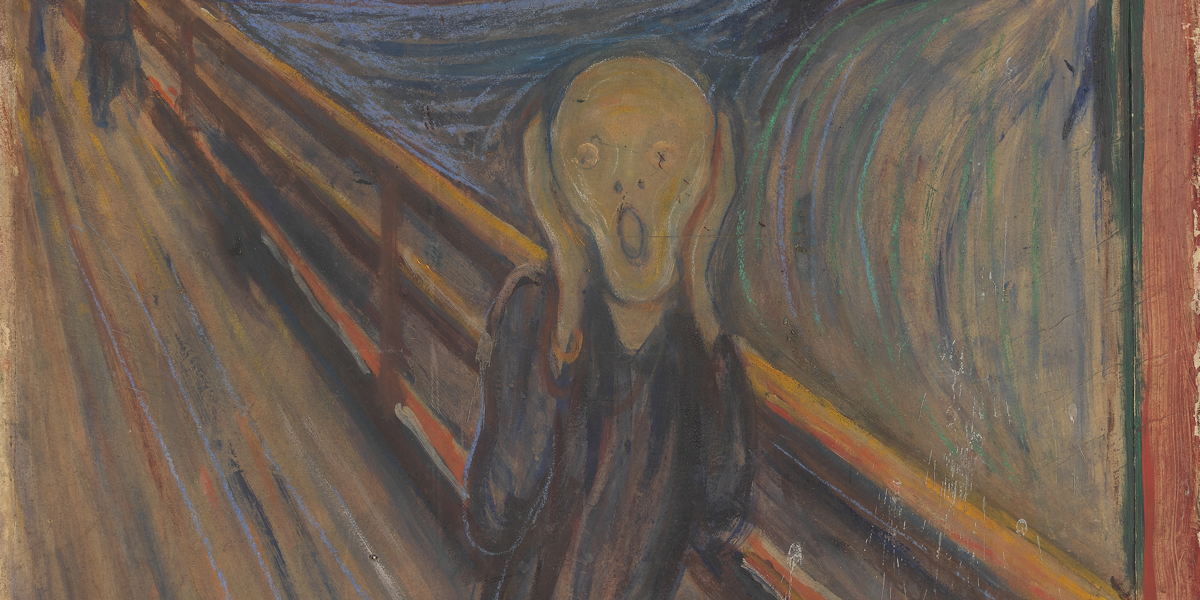
Who’s afraid of the Big Bad Wolf? The story of moral panic and how it spreads
Opinion + AnalysisSociety + Culture
BY Naomi Barnes 22 JUL 2025
This is a story about moral panic: a familiar social pattern where fear swells, villains are cast, and quick solutions race ahead of careful thought. Like any good tale, it begins with a wolf.
Charles Perrault (1628-1703), grandfather of the modern fairy tale, knew that morality could be controlled through stories – such as those later adapted by the Brothers Grimm – like Little Red Riding Hood, where characters like The Wolf are easily understood as folk devils.
But morality plays, where the terrible actions of evil people teach us to be good, aren’t just a staple of fantasy: they are also a key feature of media storytelling. The British sociologist, Stanley Cohen, argued that the media creates moral panics by creating ‘folk devils’, which incite panic in the community. In a way, the media is saying the Big Bad Wolf is real.
We saw this in the 1980s, when the media fuelled the “Satanic Panic” that surrounded the tabletop role-playing game, Dungeons & Dragons, amplifying claims that it led to self-harm and Satanism. In this story, the children who played the game were folk devils, coordinating to corrupt their peers.
Many times, a moral panic is an exaggeration of a social challenge that does exist. It’s often based on real events, but the story is blown out of proportion, especially compared to other, more serious, problems. When something becomes a moral panic, we’re inspired to act fast, often without careful consideration or scrutiny of the narrative we’re fed. Its moral nature can more easily justify a harsh response because the stakes feel so high. This can lead to hasty or bad decisions, which can end up doing far more harm than good.
It’s important that we can identify the signs of a moral panic, so we can respond appropriately. Using a diagnosis tool with embedded ethical questions, like the steps below, can help us think critically about what we are being told. We can think about which bits might be exaggerated or amplified, and whether the solutions offered will actually address the core issue.
Prevention becomes prejudice
The first stage in the creation of a moral panic is the identification of a folk devil. Cohen noted that there are several clusters of who, or what, gets branded as a folk devil, with it often resting on pre-existing prejudices or stereotypes. Common candidates are young people, working class or violent men. Sometimes it’s new media, like rock music, social media or video games. Other times it’s groups that are often the targets of discrimination, such as single mothers, welfare cheats, refugees or asylum seekers.
One of the risks of a moral panic is that it becomes a mask for prejudice. Not all wolves devour grandmothers, just as not all young men are violent, or all childcare workers are predators. Although real danger can exist, moral panic begins when appearance, identity or difference becomes mistaken as a threat.
It is the leap from concern to caricature that makes a folk devil.
Once we know the villain, we construct the story. A challenge to the social order becomes a moral panic because of the way it’s communicated. When the media goes beyond describing something and injects morally judgemental language, using words like “thug” or “bludger” or “monster”, it is more likely to trigger an emotional response.
How the media and community tell the story also determines not just who the suitable enemy is, but who the suitable victim might be. The victim will be someone the public can easily identify, such as children or innocent girls and women, but typically someone everyone knows.
This next stage is crucial to how moral panic is sustained. This is where the media calls on public experts to comment. Religious leaders are often drawn in to help sustain concern about a social challenge as they are already framed as guardians of morality. Sometimes it’s academics or activists or the representative of a non-government organisation who is called upon to argue over the nuances of the case, lending it greater credibility.
Hasty solutions
A moral panic demands solutions. But, just as there is no rescuing Little Red without an axe, solutions can be extreme while temperatures run high. The very urgency of a moral panic can inspire us to look to options we might normally reject due to their high cost or because of the compromises involved. A moral panic might lead to blanket bans, a reduction in civil liberties or even calls for the death penalty.
This leads to the last step in a moral panic, when policymakers get involved. When the media, backyard barbeques, school pick up and letters to MPs are all begging the government to intervene, it’s more likely for the government to do so, lest it look weak or, worse still, complicit in the moral failing. But good policy can take years to develop, but a moral panic demands it is made fast, as seen with the Australian government’s youth social media ban. Sometimes that produces more problems while failing to solve the deeper underlying issues that contributed to the moral panic. Banning Dungeons & Dragons wouldn’t have solved the underlying mental health issues that triggered the panic in the first place.
The Big Bad Wolf never really left the storybooks, we just keep giving him new names, faces and new reasons to panic. There really are wolves out there, and we need to find ways to deal with them. But when temperatures run high, we risk offering fairy tale solutions to real-world problems.
Image: Edvard Munch, The Scream, 1893

BY Naomi Barnes
Associate Professor Naomi Barnes is a researcher at Queensland University of Technology (QUT) interested in how political actors perform and respond to crises. With a specific focus on moral panics and manufactured crises, she focuses on education politics in Australia, the US and the UK. Naomi is editor in chief of a forthcoming International Handbook of Schooling in Times of Crisis. Naomi is regularly asked to comment on how Australian teachers should respond to perceived threats to Australian nationalism, identity, and democracy. Naomi is the co-course co-ordinator of a future-focused Humanities and Social Sciences Curriculum Project at QUT and lectures future teachers in Modern History and Civics and Citizenship.
Ethics in your inbox.
Get the latest inspiration, intelligence, events & more.
By signing up you agree to our privacy policy
You might be interested in…
Big thinker
Society + Culture
Big Thinker: Philippa Foot
Opinion + Analysis
Society + Culture
8 questions with FODI Festival Director, Danielle Harvey
Opinion + Analysis
Society + Culture
Should we be afraid of consensus? Pluribus and the horrors of mainstream happiness
Opinion + Analysis
Health + Wellbeing, Relationships, Society + Culture
Look at this: the power of women taking nude selfies
There is more than one kind of safe space
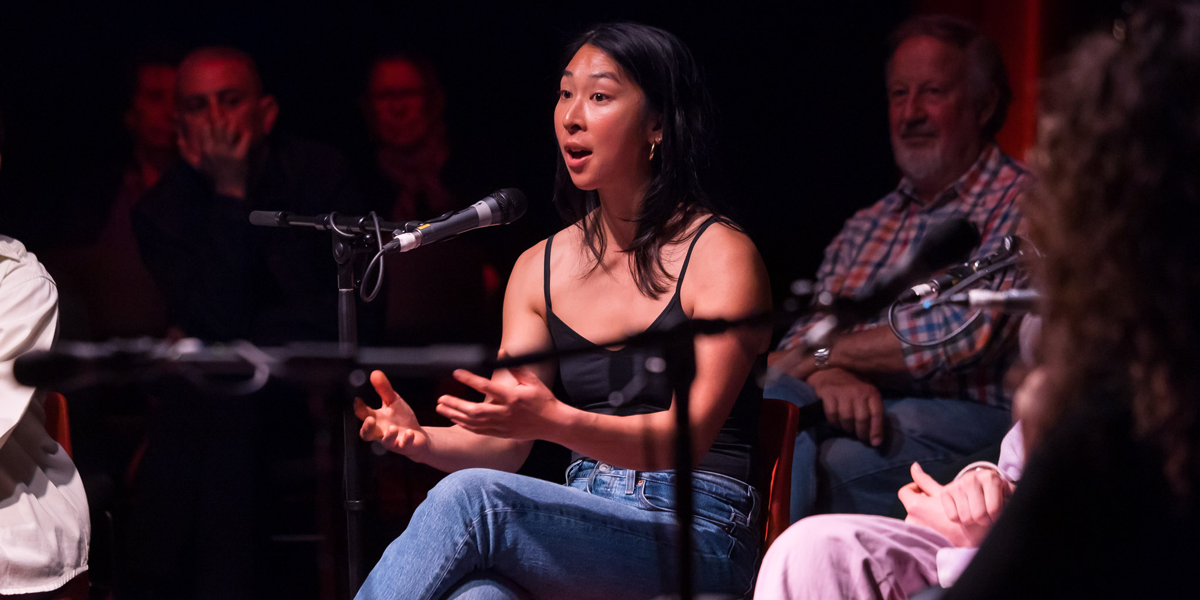
There is more than one kind of safe space
Opinion + AnalysisSociety + CultureRelationships
BY Tim Dean 21 JUL 2025
We’ve heard a lot about safe spaces recently. But there are two kinds of safe space, and one of them has been neglected for too long.
Like many universities today, new students at Western Sydney University are invited to use a range of campus facilities, such as communal kitchens, prayer rooms, parents’ rooms as well as Women’s Rooms and Queer Rooms. But there’s something that sets the latter two apart from the other facilities.
WSU describes the Women’s Room as “a dedicated space for woman-identifying and non-binary students, staff and visitors”, saying they are provided in an effort to “provide a safe space for women on campus”. The Queer Room is described as “a safe place where all people who identify as lesbian, gay, bisexual, trans, queer, or otherwise sex and/or gender diverse can relax in an accepting and inclusive environment.” The operative term in both descriptions is “safe”.
We have heard a lot about such “safe spaces” over the past several years. Yet as the number and type of safe spaces has grown, so too has the concept of safety expanded, particularly within United States universities. Many students now expect the entire campus to effectively operate as a safe space, one where they can opt out of lectures that include subjects that could trigger past traumas, raise issues they believe are harmful or involve views they find morally objectionable. The notion of safety has also been invoked to cancel lectures on university campuses by reputable academics because some students on campus claim the talk would make them feel unsafe.
In response, safe spaces have been criticised for shutting down open discourse about difficult or conflicted topics, particularly because such discourse has been seen as an essential part of higher education. Lawyer Greg Lukianoff and psychologist Jonathan Haidt have also argued that safe spaces coddle students by shielding them from the inevitable controversies and offences that they will face beyond university, contributing to greater levels of depression and anxiety.
However, all of the above refers to just a single kind of safe space: one where people are safe from possible threats to their wellbeing.
In a complex and diverse world, where people of different ethnicities, religions, political persuasions and beliefs are bound to mingle, there are good reasons to have dedicated places to where individuals can retreat, spaces where they know they will be safe from prejudice, intolerance, racism, sexism, discrimination or trauma.
But there is another kind of safe space that is equally important: one where people are safe to express themselves authentically and engage in good faith with others around difficult, controversial and even offensive topics.
While safe from spaces might be necessary to shield the vulnerable from harm in the short term, safe to spaces are necessary to help society engage with, and reduce, those harms in the long term.
And while much of the focus in recent years has been on creating safe from spaces, there are those who have been working hard to create more safe to spaces.
A safe to space
More than thirty years ago, philosopher and Executive Director of The Ethics Centre, Dr Simon Longstaff AO, set up a Circle of Chairs in Sydney’s Martin Place and invited passers-by to sit down and have a conversation. In doing so, he effectively created a powerful safe to space. It was so successful that this model of conversation remains at the heart of how The Ethics Centre operates to this day, through its range of public facing events including Festival of Dangerous Ideas, The Ethics Of…, and In Conversation.
But the success of The Ethics Centre’s events – similar to any other safe to space – is that they don’t just operate according to the norms of everyday conversation, let alone the standards of online comment sections or social media feeds. In these environments, the norms of conversation make it difficult to genuinely engage with challenging or controversial ideas.
In conversations with friends and family, we often feel great pressure to conform with the views of others, or avoid topics that are taboo or that might invite rebukes from others. In many social contexts, disagreement is seen as being impolite or the priority is to reinforce common beliefs rather than challenge them.
In the online space, conversation is more free, but it lacks the cues that allow us to humanise those we’re speaking to, leading to greater outrage and acrimony. The threat of being attacked online causes many of us to self-censor and not share controversial views or ask challenging questions.
For a safe to space to work, it needs a different set of norms that enable people to speak, and listen, in good faith.
These norms require us to withhold our judgement on the person speaking while allowing us to judge and criticise the content of what they’re saying. They encourage us to receive criticism of our beliefs while not regarding them as an attack on ourselves. They prompt us to engage in good faith and refrain from employing the usual rhetorical tricks that we often use to “win” arguments. These norms also demand that we be meta-rational by acknowledging the limits of our own knowledge and rationality, and require us to be open to new perspectives.
Complementary spaces
It takes work to create safe to spaces but the rewards can be tremendous. These spaces offer blessed relief for people who all-too-often hold their tongue and refrain from expressing their authentic beliefs for fear of offence or the social repercussions of saying the “wrong thing”. They also serve to reveal the true diversity of views that exist among our peers, diversity that is often suppressed by the norms of social discourse. But, perhaps most importantly, they help us to confront difficult and important issues together.
Crucially, safe to spaces don’t conflict with safe from spaces; they complement them. If we only had safe from spaces, then many difficult topics would go unexamined, many sources of harm and conflict would go unchallenged, new ideas would be suppressed and intellectual, social and ethical progress would suffer.
Conversely, if we only had safe to spaces, then we wouldn’t have the refuges that many people need from the perils of the modern world; we shouldn’t expect people to have to confront difficulty, controversy or trauma in every moment of their lives.
It is only when safe from and safe to are combined that we can both protect the vulnerable from harm without sacrificing our ability to understand and tackle the causes of harm.
This article has been updated from its original publication in August 2022.

Ethics in your inbox.
Get the latest inspiration, intelligence, events & more.
By signing up you agree to our privacy policy
You might be interested in…
Opinion + Analysis
Health + Wellbeing, Relationships
Eight questions to consider about schooling and COVID-19
Opinion + Analysis
Relationships
It takes a village to raise resilience
Opinion + Analysis
Health + Wellbeing, Relationships
How to pick a good friend
Big thinker
Politics + Human Rights, Society + Culture
Big Thinker: Slavoj Žižek
BY Tim Dean
Dr Tim Dean is a public philosopher, speaker and writer. He is Philosopher in Residence and Manos Chair in Ethics at The Ethics Centre.
Where did the wonder go – and can AI help us find it?

Where did the wonder go – and can AI help us find it?
Opinion + AnalysisScience + TechnologySociety + Culture
BY Lucy Gill-Simmen 17 JUL 2025
French philosopher René Descartes crowned human reason in 1637 as the foundation of existence: Cogito, ergo sum – I think, therefore I am. For centuries, our capacity to doubt, question and think has been both our compass and our identity. But what does that mean in an age where machines can “think”, generate ideas, write novels, compose symphonies and, increasingly, make decisions?
Artificial intelligence (AI) has brought a new kind of certainty, one that is quick, data-driven and at times frighteningly precise, at times alarmingly wrong. From Google’s Gemini to OpenAI’s ChatGPT, we live in a world where answers can arrive before the question is even finished. AI has the potential to change not just how we work, but how we think. As our digital tools become more capable, we may well be justified in asking: where did the wonder go?
We have become increasingly accustomed to optimisation. From using apps to schedule our days to improving how companies hire staff through AI-powered recruitment tools, technology has delivered on its promise of speed and efficiency.
In education, students increasingly use AI to summarise readings and generate essay outlines; in healthcare, diagnostic models match human doctors in detecting disease.
But in our pursuit of optimisation, we may have left something essential behind. In her book The Power of Wonder, author Monica Parker describes wonder as a journey, a destination, a verb and a noun, a process and an outcome.
Lamenting how “modern life is conditioning wonder-proneness out of us”, Parker suggests we have “traded wonder for the pale facsimile of electronic novelty-seeking”. And there’s the paradox: AI gives us knowledge at scale, but may rob us of the humility and openness that spark genuine curiosity.
AI as the antidote?
But what if AI isn’t the killer of wonder, but its catalyst? The same technologies that predict our shopping habits or generate marketing content can also create surreal art, compose jazz music and tell stories in different ways.
Tools like DALL·E, Udio.ai, and Runway don’t just mimic human creativity, they expand our creative capacity by translating abstract ideas into visual or audio outputs instantly. They don’t just mimic creativity, they open it up to anyone, enabling new forms of self-expression and speculative thinking.
The same power that enables AI to open imaginative possibilities can also blur the line between fact and fiction, which is especially risky in education where critical thinking and truth-seeking are paramount. That’s why it’s essential that we teach students not just to use these tools, but to question them.
Teaching people to wonder isn’t about uncritical amazement – it’s about cultivating curiosity alongside discernment.
Educators experimenting with AI in the classroom are starting to see this potential, as my recent work in the area has shown. Rather than using AI merely to automate learning, we are using it to provoke questions and to promote creativity.
When students ask ChatGPT to write a poem in the voice of Virginia Woolf about climate change, they learn how to combine literary style with contemporary issues. They explore how AI mimics voice and meaning, then reflect on what works and what doesn’t.
When they use AI tools to build brand storytelling campaigns, they practise turning ideas into images, sounds and messages and learn how to shape stories that connect with audiences. Students are not just using AI, they’re learning to think critically and creatively with it.
This aligns with Brazilian philosopher Paulo Friere’s “banking” concept of education, where rather than depositing facts, educators are required to spark critical reflection. AI, when used creatively, can act as a dialogue partner, one that reflects back our assumptions, challenges our ideas and invites deeper inquiry.
The research is mixed, and much depends on how AI is used. Left unchecked, tools like ChatGPT can encourage shortcut thinking. When used purposely as a dialogue partner, prompting reflection, testing ideas and supporting creative inquiry, studies show it can foster deeper engagement and critical thinking. The challenge is designing learning experiences that make the most of this potential.
A new kind of curiosity
Wonder isn’t driven by novelty alone, it’s about questioning the familiar. Philosopher Martha Nussbaum describes wonder as “taking us out of ourselves and toward the other”. In this way, AI’s outputs have the potential to jolt people out of cognitive ruts and into new realms of thought, causing them to experience wonder.
It could be argued that AI becomes both mirror and muse. It holds up a reflection of our culture, biases and blind spots while nudging us toward the imaginative unknown at the same time. Much like the ancient role of the fool in King Lear’s court, it disrupts and delights, offering insights precisely because it doesn’t think like humans do.
This repositions AI not as a rival to human intelligence, but as a co-creator of wonder, a thought partner in the truest sense.
Descartes saw doubt as the path to certainty. Today, however, we crave certainty and often avoid doubt. In a world overwhelmed by information and polarisation, there is comfort in clean answers and predictive models. But perhaps what we need most is the courage to ask questions, to really wonder about things.
The German poet Rainer Maria Rilke once advised: “Be patient toward all that is unsolved in your heart and try to love the questions themselves.”
AI can generate perspectives, juxtapositions and “what if” scenarios that challenge students’ habitual ways of thinking. The point isn’t to replace critical thinking, but to spark it in new directions. When artists co-create with algorithms, what new aesthetics emerge that we’ve yet to imagine?
And when policymakers engage with AI trained on other perspectives from around the world, how might their understanding and decisions be transformed? As AI reshapes how we access, interpret and generate knowledge, this encourages rethinking not just what we learn, but why and how we value knowledge at all.
Educational philosophers such as John Dewey and Maxine Greene championed education that cultivates imagination, wonder and critical consciousness. Greene spoke of “wide-awakeness”, a state of being in the world.
Deployed thoughtfully, AI can be a tool for wide-awakeness. In practical terms, it means designing learning experiences where AI prompts curiosity, not shortcuts; where it’s used to question assumptions, explore alternatives, and deepen understanding.
When used in this way, I believe it can help students tell better stories, explore alternate futures and think across disciplines. This demands not only ethical design and critical digital literacy, bit also an openness to the unknown. It also demands that we, as humans, reclaim our appetite for awe.
In the end, the most human thing about AI might be the questions it forces us to ask. Not “What’s the answer?” but “What if …?” and in that space, somewhere in between certainty and curiosity, wonder returns. The machines we built to do our thinking for us might just help us rediscover it.

BY Lucy Gill-Simmen
Lucy Gill-Simmen is the Vice-Dean for Education and Student Experience and a Senior Lecturer in Marketing in the School of Business and Management at Royal Holloway, University of London.
Ethics in your inbox.
Get the latest inspiration, intelligence, events & more.
By signing up you agree to our privacy policy
You might be interested in…
Opinion + Analysis
Health + Wellbeing, Society + Culture
Alpha dogs and the toughness trap: How we can redefine modern masculinity
Opinion + Analysis
Society + Culture
Feeling our way through tragedy
Opinion + Analysis
Business + Leadership, Science + Technology
One giant leap for man, one step back for everyone else: Why space exploration must be inclusive
Opinion + Analysis
Politics + Human Rights, Health + Wellbeing, Society + Culture
I changed my mind about prisons
Who’s to blame for overtourism?
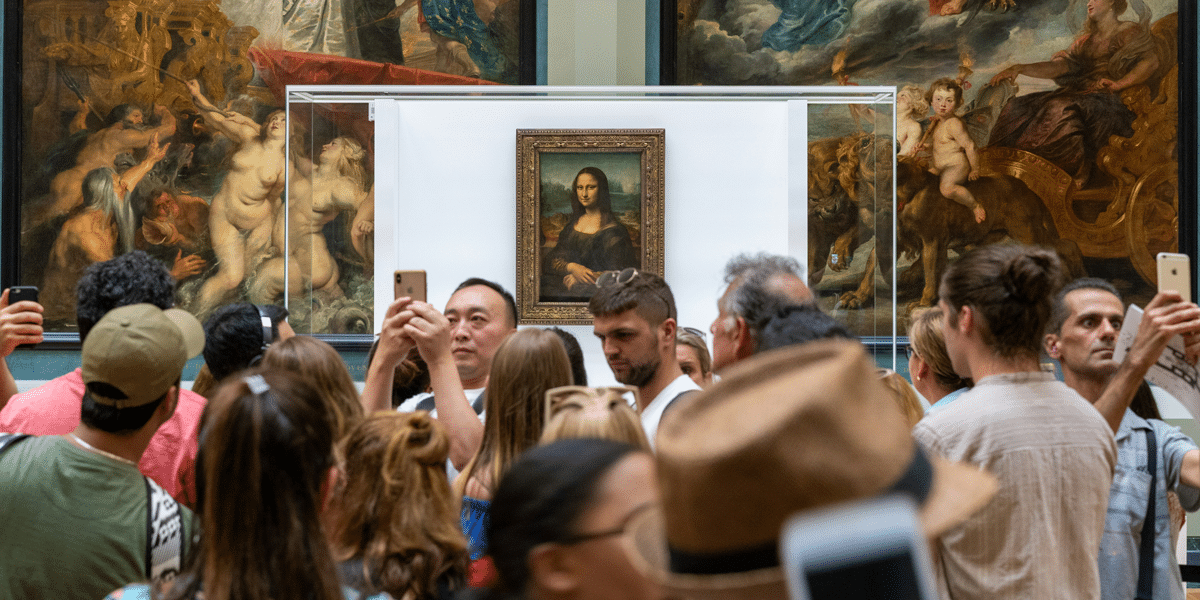
Who’s to blame for overtourism?
Opinion + AnalysisSociety + CultureClimate + Environment
BY William Salkeld 7 JUL 2025
Anyone who’s been privileged enough to have a ‘Euro Summer’ recently would tell you that the hottest tourist spots are overcrowded. Really overcrowded. Think of the lines at popular attractions like Sagrada Familia and Eiffel Tower, or the hordes of travellers in historic cities like Venice and Dubrovnik.
Last summer, protests against overtourism in Barcelona, Spain, made international headlines when a small group of locals began spraying tourists sitting outside a café with water guns. While an isolated water gun incident may seem harmless, there is a deeper moral accusation being made here. Tourists are being blamed for overtourism.
Overtourism happens when the number of tourists in a location is greater than the amount that can comfortably be accommodated. For example, Barcelona has a population of 1.7 million people, but had 15.5 million travellers stay at least one night in 2024.
But can the causes of overtourism be boiled down solely to individual tourists?
It is difficult to impossible for individuals to solve overtourism because it would require significant coordination between hundreds of millions of individual tourists, and for them deprioritise self-interest, while still competing with the interests of businesses, residents, governments and other tourists – otherwise known as a collective action problem.
There are, however, ways that each of these groups can still make a difference.
Individual tourists
Imagine this: after spending months behind a desk daydreaming of the Trevi Fountain in Rome, you find yourself there – alongside thousands of other tourists. You would prefer there were fewer tourists, but you cannot control the actions of others. What individual tourists can control, however, is their behaviour and how they choose to spend their money.
One of the first things that reluctant Year-9 school campers learn in outdoor-ed is to leave no trace in the environment. When tourists leave behind even small amounts of rubbish in the places they travel, it adds up and contributes to environmental degradation. Mt Everest is littered with rubbish left behind by hikers who have ignored local regulations that require them to take 8kg of rubbish with them when they leave. Leaving no trace is a bare minimum for tourists.
Individual tourists can also make conscious decisions to spend their money wisely in a way that gives back to a country’s economy or its residents. Perhaps they can choose to stay at a hotel, rather than book an AirBnB or rental apartment that would have otherwise been available for locals to live in. Or they can spend their money at locally owned businesses rather than chain-restaurants like McDonalds. Given the influence of the user review economy, individuals can choose to leave reviews for businesses with strong ethical credentials, offering valuable support to a struggling tourism economy.
The tourism industry
The tourism industry is an essential part of many economies. In 2022, approximately 11% of Croatia’s GDP – a country home to Dubrovnik (famously, the real-life location of King’s Landing in Game of Thrones) came from tourism. All around the world, the tourism industry can be a vital source of income for locals.
However, the way income from tourism is distributed within a country matters. Bali, a perennial favourite of Aussie travellers, has seen an increased amount of foreign-owned businesses like villas and nightclubs in the past few years. While many employ local residents, foreign-owned businesses can shift income away from the locals. Where possible, tourists should try spending money at locally owned businesses that have a good reputation in the local community for sustainability and ethical practices.
The type of business also contributes to another problem with overtourism: Disneyfication. Strolling through central Amsterdam, you would think the locals spent their time buying souvenirs, eating at restaurants with menus in eight different languages, or smoking at ‘coffee shops’. In reality, most of these businesses are tailored squarely at tourists, turning the urban makeup of the city into a tourist theme-park or commodifying its culture through trinkets. As Barcelona-native Xavier Mas de Xaxàs writes, if overtourism continues, “destinations will continue to lose their real identities and with them an authentic tourist experience.”
One way to avoid having a ‘theme park’ experience is to ask locals what they would do if they were travelling there for the first time. This not only offers a sign of respect to locals, but creates richer and more authentic travel experiences.
Companies like Airbnb were originally designed to help facilitate this interaction, allowing tourists to stay in the homes with locals instead of hotels. They also provide a stream of revenue for local homeowners and significantly contribute to both local economies and the overall tourism sector.
However, in the past decade, short-term rentals like Airbnb have contributed to a growing housing crisis around the world. The problem is that offering short-term rentals for tourists is more lucrative to landlords and property developers than offering long-term leases, meaning apartments that would otherwise have been available for locals to live in are now being rented out to tourists. The greater the overtourism, the greater the effect on housing availability for locals.
Government
No single tourist wants to overcrowd an area but can’t coordinate with other tourists to prevent it from happening.
This is where governments come in. The heart of the problem of overtourism is that too many people end up in one location. Only governments can control how many tourist visas are given out and what percentage of housing can be used for tourist accommodation, and they have a responsibility to do so.
One possible solution is the introduction of a permit system similar to one used in Buddhist Kingdom of Bhutan. The country protects its environmental and cultural heritage from overtourism by charging a tourist tariff of $100 USD per adult per day. One downside, however, is the tariffs price out some potential travellers creating in an inequality in access to travel. Yet too low a price fails to lower entry numbers, demonstrated by the €10 day-entry fees introduced in Venice last year.
Perhaps the best permit system is one where prices are low and the number of permits are limited. In Barcelona’s famous Park Güell, overcrowding is prevented by limiting access to 1400 visitors per day through a low-cost permit system. Whether such a permit system can work at a country or city level remains to be seen, but provides a good model of how governments could regulate overtourism.
Overtourism is a complex problem that will not be solved overnight. It requires a cohesive and collective action from tourists, the industry, and government in a way that is fair to locals and respectful of local customs and laws. While I can’t guarantee that your Euro Summer will be free of surprise water gun attacks, you can sleep easier knowing that you’re being a responsible tourist.

BY William Salkeld
William Salkeld is a PhD candidate with the school of Politics and International Relations at the Australian National University, researching interspecies democratic theory. He is interested in animal and environmental ethics, political philosophy, animal minds and cognition, and moral philosophy.
Ethics in your inbox.
Get the latest inspiration, intelligence, events & more.
By signing up you agree to our privacy policy
You might be interested in…
Opinion + Analysis
Relationships, Society + Culture
The Bear and what it means to keep going when you lose it all
Opinion + Analysis
Relationships, Society + Culture
Inside The Mind Of FODI Festival Director Danielle Harvey
Big thinker
Climate + Environment
7 thinkers improving our ethical understanding of the environment
Opinion + Analysis
Society + Culture
The art of appropriation
Make an impact, or earn money? The ethics of the graduate job

Make an impact, or earn money? The ethics of the graduate job
Opinion + AnalysisSociety + CultureBusiness + LeadershipHealth + Wellbeing
BY Anna Goodman 1 JUL 2025
Young people can often feel torn between the desire to find or start a good job that is financially rewarding while striving to make a positive impact in the world. How should we aim to prioritise the balance between investing in ourselves, our skill sets, and what we feel the world needs?
In 2023, I graduated with a Bachelor of Arts, majoring in philosophy. For most of the first part of my life, my identity centered around learning and being a student. I spent my days in class, reading and writing, and discussing with my close friends about how we wanted to make the world a better place.
Figuring out what I wanted to do after university was a challenge. I knew what I cared about: making sure I continued learning, having opportunities to experience different industries while working with lots of different people, and earning enough money to be able to live well (and maybe save a little). Outside of work, I knew I wanted to be in a place where I would continue to grow to become a true, happy version of myself.
Now two years out of university, I have spent one of those years working as an analyst at a consulting firm. While it is hard work, I’m reaching my career goals of working in different industries, receiving a high investment in training, and earning enough to be a renter in Sydney.
During Christmas break in 2024, about nine months into full time work, I hit a natural point of reflection. Slowing down gave me time to think about what I really wanted from work, and life. I had been working some pretty long hours (as is common in many graduate jobs), and I started to think about what felt worth it to me.
Moral guilt started to creep in, as I began to wonder if I should be spending my time trying to do something more aligned with what I learnt at university and having a career with more purpose. However, with a challenging job market and the continuously rising cost of living, my “logical” brain wonders if it is the right time to make a career move.
So, how can we think about these big career and life decisions in a clear, methodical way?
Ikigai and finding our purpose
It’s hard to distill anything as vast and complex as “work in general” or “life in general” using a simple, one-dimensional framework. That being said, it’s not a new question to ask and reflect on what constitutes meaning in our work and in our lives.
One way we can start to unpack this tension is using the Japanese concept of ikigai – translated roughly to “driving force”. Writers Francesc Miralles and Hector Garcia published their book Ikigai: The Japanese Secret to a Long and Happy Life in 2016, after spending a year travelling around Japan. They interviewed more than 100 elderly residents in Ogimi Village, Okinawa, a community known for its longevity, and one thing that these seniors had in common is that they had something worth living for, or an ikigai.
Ikigai can be summarised into four components:
- What you love
- What you are good at
- What the world needs
- What you can get paid for
Asking these questions can get us closer to understanding what intrinsically motivates us and what gives us our reasons for waking up in the morning. Garcia recounts from his interviews with elderly residents in Okinawa: “When we asked what their ikigai was, they gave us explicit answers, such as their friends, gardening, and art. Everyone knows what the source of their zest for life is, and is busily engaged in it every day.”
Reading this, I can’t help but wonder if these answers are a simplification for argument’s sake. Striking a balance between earning enough money to do what I love in my free time (while also paying my bills) and doing something good for the world feels really challenging.
So, how can we make this framework feel more attainable for young people today?
Narrowing the scope
Something I was regularly told as I was applying to graduate jobs was that no one’s first job is perfect. In general, this can be a helpful premise, especially given our interests, circumstances, and contexts can change significantly over time.
One of the ways I began to feel less overwhelmed is by narrowing the ikigai questions around what gives my life meaning to what is giving my life meaning right now. It’s hard to see how I can make a positive contribution to the world through my work, unless I build up skills and knowledge over time that will allow me to have that impact.
For example, when I ask questions about what I love and what I am good at, these answers have changed substantially through my years of formal education and now as a worker. Right now, I have a set of skills I’m good at, however, these will evolve throughout my life and so will my enjoyment of them. In the short term, I enjoy the skills in research, analysis, and problem solving that my current job offers, because I know these are getting me closer to my long-term goal of being able to think pragmatically about key global issues and how we might be able to work to solve them. So, maybe it isn’t always helpful to ask the question “what am I good at” without also asking how this has changed, and how this might continue to change.
As young people, we’re changing and growing up in a world that feels unpredictable and unstable. Technology, culture, politics, economics, and the climate are almost unrecognisable from 10 or 15 years ago. It makes sense that trying to answer our four pillars of ikigai are challenging questions to try and answer if we’re thinking about a time span that gets us through most of our adult lives.
We need ethically minded people in all parts of the world, learning skills and becoming versions of themselves they are proud of. While our jobs are important in teaching and helping us figure out where in the world we want to go, we are more than the work that we do, and our careers, lives, and interests will almost certainly continue to evolve.
Part of graduating is realising that there is a whole wide world of options. This can be liberating and exciting, as well as stressful and overwhelming. By focusing on the “right now” – with regards to what we want, what suits our skills, and what the world needs – hopefully we can begin to wade through the complexities of post-grad life and start to carve a path that is fulfilling, fun and good for society.

BY Anna Goodman
Anna is a graduate of Princeton University, majoring in philosophy. She currently works in consulting, and continues to enjoy reading and writing about philosophical ideas in her free time.
Ethics in your inbox.
Get the latest inspiration, intelligence, events & more.
By signing up you agree to our privacy policy
You might be interested in…
Big thinker
Relationships, Society + Culture
Big Thinker: Simone de Beauvoir
Opinion + Analysis
Business + Leadership, Science + Technology
People first: How to make our digital services work for us rather than against us
Opinion + Analysis
Society + Culture, Climate + Environment, Politics + Human Rights
Why you should change your habits for animals this year
Opinion + Analysis
Health + Wellbeing, Society + Culture
Should I have children? Here’s what the philosophers say
Making sense of our moral politics
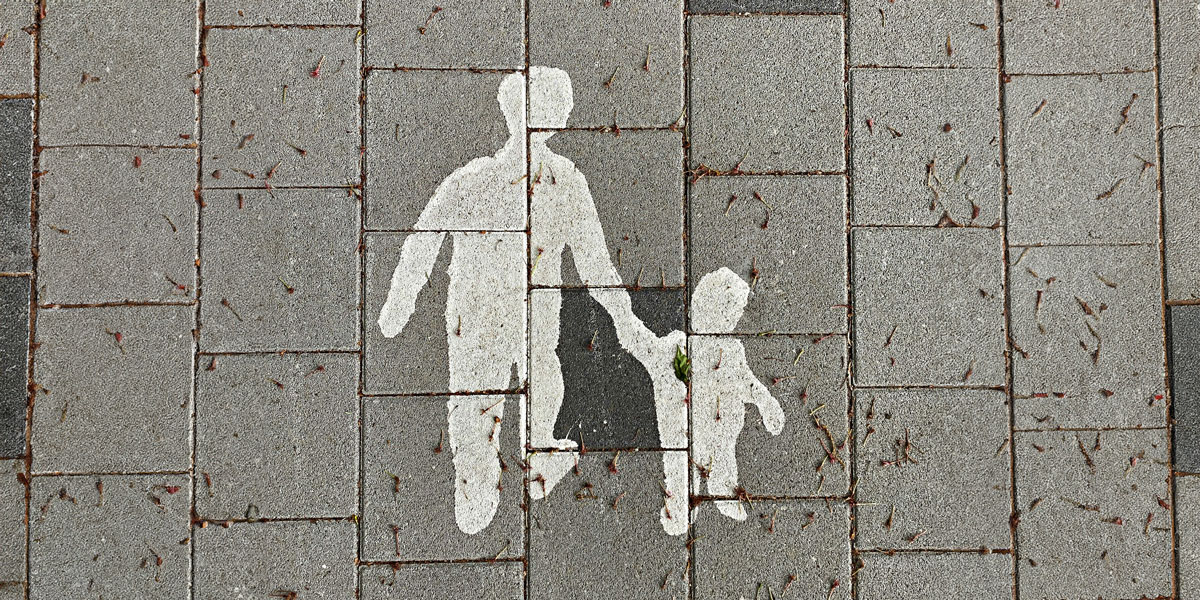
Making sense of our moral politics
Opinion + AnalysisPolitics + Human RightsSociety + Culture
BY Tim Dean 17 JUN 2025
Want to understand politics better? Want to make sense of what the ‘other side’ is talking about? Then take a moment to reflect on your view of an ideal parent.
What kind of parent are you – either in reality or hypothetically? Do you want your children to build self-reliance, discipline, a strong work ethic and steel themselves to succeed in a dog-eat-dog world? Do you want them to respect their elders, which means acknowledging your authority, and expect them to be loyal to your family and community? Do you want them to learn to follow the rules, through punishment if necessary, knowing that too much coddling can leave them lazy or fragile?
Or do you want to nurture your children, so they feel cared for, cultivating a sense of empathy and mutual respect towards you and all other people? Do you want them to find fulfilment in their lives by exploring their world in a safe way, and discovering their place in it of their own accord, supported, but not directed, by you? Do you believe that strictness and inflexible rules can do more harm than good, so prefer to reward positive behaviour rather than threaten them with punishment?
Of course, few people will fall entirely into one category, but many people will feel a greater affinity with one of these visions over the other. This, according to American cognitive linguist, George Lakoff, is the basis of many of our political disagreements. This, he argues, is because many of us intuitively adopt a morally-laced metaphor of the government-as-family, with the state being the parents and the citizens the children, and we bring our preconceived notions of what a good family looks like and apply them to the government.
Lakoff argues that people who lean towards the first description of parenthood described above adopt a “Strict Father” metaphor of the family, and they tend to lean conservative or Right wing. Whereas people who lean towards the second metaphor adopt a “Nurturant Parent” metaphor of the family, and tend to lean more progressive or Left wing. And because these metaphors are so embedded in our understanding of the world, and so invisible to us, we don’t even realise that we see the world – and the role of government – in a very different light to many other people.
Strict Father
The Strict Father metaphor speaks to the importance of self-reliance, discipline and hard work, which is one reason why the Right often favours low taxation and low welfare spending. This is because taxation amounts to taking away your hard-earned money and giving it to someone who is lazy. Remember Joe Hockey’s famous “lifters and leaners” phrase?
The Right is also more wary of government regulation and protections – the so-called “nanny state” – because the Strict Father metaphor says we should take responsibility for our actions, and intervention by government bureaucrats robs us of our ability to make decisions for ourselves.
The Right is also more sceptical of environmental protections or action against climate change, because they subvert the natural order embedded in the Strict Father, which places humans above nature, and sees nature as a resource for us to exploit for our benefit. Climate action also looks to them like the government intervening in the market, preventing hard working mining and energy companies from giving us the resources and electricity we crave, and instead handing it over to environmentalists, who value trees more than people.
Implicit in the Strict Father view is the idea that the world is sometimes a dangerous place, that competition is inevitable, and there will be people who fail to cultivate the appropriate virtues of discipline and obedience to the rules. For this reason, the Right is less forgiving of crime, and often argues that those who commit serious crimes have demonstrated their moral weakness, and need to be held accountable. Thus it tends to favour more harsh punishments or locking them away, and writing them off, so they can’t cause any more harm.
Nurturant Parent
From the Nurturant Parent perspective, many of these Right-wing views are seen as either bizarre or perverse. The Nurturant Parent metaphor speaks to the need to care for others, stressing that everyone deserves a basic level of dignity and respect, irrespective of their circumstances.
It also acknowledges that success is not always about hard work, but often comes down to good fortune; there are many rich people who inherited their wealth and many hard working people who just scrape by, and many more who didn’t get the care and support they needed to flourish in life. For these reasons, the Left typically supports taxing the wealthy and redistributing that wealth via welfare programs, social housing, subsidised education and health care.
The Left also sees the government as having a responsibility to protect people from harm, such as through social programs that reduce crime, or regulations that prevent dodgy business practices or harmful products. Similarly, it believes that much crime is caused by disadvantage, but that people are inherently good if they’re given the right care and support. This is why it often supports things like rehabilitation programs or ‘harm minimisation,’ such as through drug injecting rooms, where drug users can be given the support they need to break their addiction rather than thrown in jail.
Implicit in the Nurturant Parent metaphor is that the world is generally a safe and beautiful place, and that we must respect and protect it. As such, the Left is more favourable towards environmental and climate policies, even if they mean that we might have to incur a cost ourselves, such as through higher prices.
Bridging the gap
Naturally, there’s a lot more to Lakoff’s theory than is described here, but the core point is that underneath our political views, there are deeper metaphors that unconsciously shape how we see the world.
Unless we understand our own moral worldview, including our assumptions about human nature, the family, the natural order or whether the world is an inherently fair place or not, then it’s difficult for us to understand the views of people on the other side of politics.
And, he argues, we should try to bridge that gap and engage with them constructively.
Part of Lakoff’s theory is that we absorb a metaphor of the family from our own experience, including our own upbringing and family life. That shapes how we make sense of things, like crime, the environment or even taxation policy. So we are already primed to be sympathetic towards some policies and sceptical of others. When we hear a politician speak, we intuitively pick up on their moral worldview, and find ourselves either agreeing or wondering how they could possibly say such outrageous things.
As such, we don’t start as entirely morally and political neutral beings, dispassionately and rationally assessing the various policies of different political parties. Rather, we’re primed to be responsive to one side more so than the other. As such, we don’t really choose whether to be Left or Right, we discover that we already are progressive or conservative, and then vote accordingly.
The difficulty comes when we engage in political conversation with people who hold a different metaphorical understanding of the world to our own. In these situations, we often talk across each other, debating the fairness of tax policy or expressing outrage at each others naivety around climate change, rather than digging deeper to reveal where the real point of difference occurs. And that point of difference could buried underneath multiple layers of metaphors or assumptions about the role of the government.
So, the next time you find yourself in a debate about tax policy, social housing, pill testing at music festivals or green energy, pause for a moment and perhaps ask a deeper question. Ask whether they think that success is due more to luck or hard work. Or ask whether the government has a responsibility to protect people from themselves. Or ask them which is more important: humanity or the rest of nature.
By pivoting to these deeper questions, you can start to reveal your respective moral worldviews, and see how they connect to your political views. You might not convince anyone to adopt your entrenched moral metaphors, but you might at least better understand why you each have the views you have – and you might not see political disagreement as a symptom of madness, and instead see it as a symptom of the inevitable variation in our understanding of the world. That won’t end your conversation, but it might start a new one that could prove very fruitful.

BY Tim Dean
Dr Tim Dean is a public philosopher, speaker and writer. He is Philosopher in Residence and Manos Chair in Ethics at The Ethics Centre.
Ethics in your inbox.
Get the latest inspiration, intelligence, events & more.
By signing up you agree to our privacy policy
You might be interested in…
Opinion + Analysis
Relationships, Society + Culture
Violence and technology: a shared fate
Big thinker
Politics + Human Rights
Big Thinker: John Locke
Opinion + Analysis
Business + Leadership, Politics + Human Rights
Australia is no longer a human rights leader
Big thinker
Relationships, Society + Culture
Big Thinker: Socrates
Arguments around “queerbaiting” show we have to believe in the private self again
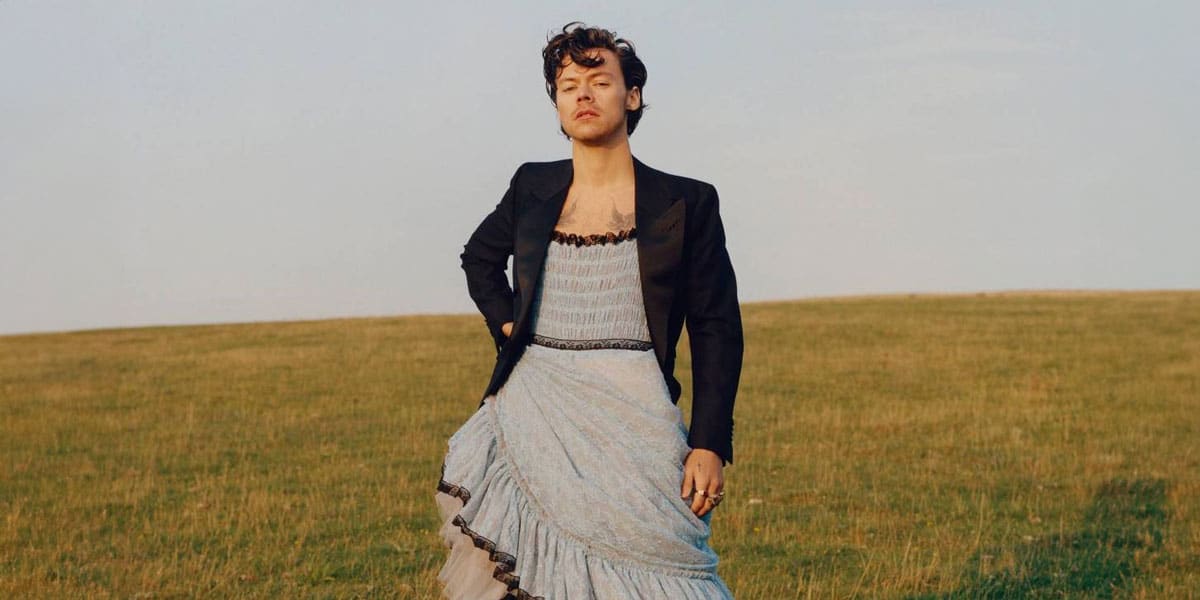
Arguments around “queerbaiting” show we have to believe in the private self again
Opinion + AnalysisSociety + Culture
BY Joseph Earp 3 JUN 2025
Back in 2020, pop star Harry Styles caused a stir when he made the supposedly taboo move of appearing on the cover of Vogue magazine wearing a dress.
The stir was probably to be expected, sadly. Though such fashion choices used to go largely uncommented upon, sexuality and gender has become a hot topic issue, and any public suggestions of gender fluidity or queer sexuality tends to prompt hysteria from conservative commentators. But it wasn’t just this group who had something to say. Styles’ dress also prompted a wave of discourse amongst progressives around “queerbaiting”.
Like so many contemporary culture clashes, at the heart of these arguments lie questions about the self: how much of someone else’s identity are we entitled to?
Queerbaiting and the demand for the entire self
At its heart, queerbaiting is a term applied to a suspected marketing strategy. The claim is that some artists and public figures court the attention of queer and allied audiences by pretending to be queer – or at the very least, suggesting that they are – in order to increase their fanbase, general public standing, and sales.
But knowing whether a public figure is actually queerbaiting, or if they are indeed queer, requires demanding access to key aspects of their identity, that once upon a time, we might have been more okay with them keeping private. Queerbaiting thus normalises our desperate hunger for, and perpetuation of, gossip – but here, it casts feeding that desire for gossip as some kind of moral act.
The least harmful examples of these investigations into public figures’ identity markers are basically just online gossip. For example, discussions around the sexuality of actors like Hugh Jackman, or filmmakers like Baz Luhrmann, have existed for a long time. The most harmful examples resemble old-fashioned “outing”. For instance, just a few years ago, one of the key players of the TV show Heartstopper felt pressured into publicly revealing their sexuality to avoid accusations of queerbaiting. “I’m bi,” he wrote. “Congrats for forcing an 18-year-old to out himself. I think some of you missed the point of the show.”
The need for a private self
Discussions about queerbaiting have tricked us into believing that we are not just entitled to a celebrity’s personal life because we are snoops, but because we gain something morally through that demand.
While it might be a well-intentioned, certainly – we should be suspicious of the behaviour of the ultra-rich and public figures trying to gain more capital, particularly when it comes to the harnessing of marginalised identities – that suspicion does not undo the need for privacy.
The demand that people must “out” themselves has always been problematic – but now, in an increasingly dangerous international political climate, such as the Trump administration emboldening anti-LGBTQIA+ groups, it has become actively harmful. When we try to convince ourselves that the entitlement to someone’s sexuality or gender is “logical” or reasonable, we start sliding down a pretty slippery slope, at risk of ending up in a place where marginalised groups have no right to privacy, in a world that has the potential to become only more hostile.
More than that, queerbaiting enforces a categorised, inflexible and outdated understanding of gender and sexuality that progressives have done a lot of work to abandon. Demanding that someone label themselves, when they might not be ready to do so, or might not even have the personal language yet to decide what precise label that they would use, makes the spectrum of sexuality seem unnervingly rigid.
After all, experimenting with a fluid sexuality and gender can be, in some cases, a slow process. Forcing someone to label themselves, when they may just be at the beginning of that journey, goes against so much good work that progressives have done to create a freer culture. The worry is not, necessarily, that celebrities themselves are being harmed by queerbaiting – but that the direction of the public discourse will have a trickle down effect, one that will normalise non-ideal practices and behaviours.
It was the philosopher John Stuart Mill who most carefully laid out the importance of the “private sphere.” For Mill, every person should be entitled to thoughts, beliefs, and sometimes even actions, that were outside the remit of the state and others – that belonged only to them. Mill foresaw that trying to police such a private sphere was akin to a kind of intellectual fascism: as soon as we let go of our private selves, we make our whole selves controllable.
Importantly, Mill believed that actions and beliefs in the private sphere stopped being ungovernable when they harmed others – he did not think that we were just free to do whatever we liked, under the guise of our privacy. But he did believe that we were entitled to a self which was ours and ours alone.
We would do well to remind ourselves of Mill’s argument. Celebrities sign up to giving a great deal of themselves to the public eye – but that does not mean that they need to give all of it. Even a public figure is allowed a private self. And when we forget that, and we start demanding more and more, we normalise the harmful attitude that privacy is something that can be given up, rather than an inalienable right that we should all enjoy.

BY Joseph Earp
Joseph Earp is a poet, journalist and philosophy student. He is currently undertaking his PhD at the University of Sydney, studying the work of David Hume.
Ethics in your inbox.
Get the latest inspiration, intelligence, events & more.
By signing up you agree to our privacy policy
You might be interested in…
Explainer
Society + Culture, Politics + Human Rights
Ethics Explainer: Just Punishment
Big thinker
Society + Culture
Big Thinker: Philippa Foot
Opinion + Analysis
Society + Culture
The morals, aesthetics and ethics of art
Opinion + Analysis
Society + Culture
